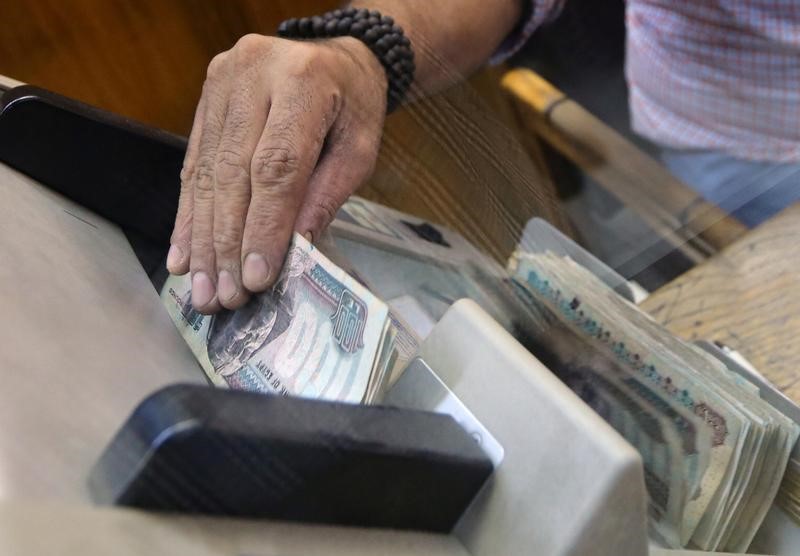By Ehab Farouk
CAIRO (Reuters) - The Egyptian pound weakened on Wednesday as importers geared up for the Islamic holy month of Ramadan and foreign currency inflows into banks declined, bankers and economists said.
Banks were selling the U.S. dollar for between 16.1-16.2 pounds, up from around 15.8 one day earlier. They were buying greenbacks from clients at around 16-16.1 pounds per dollar
"The pound's weakening today is due to a decline in foreign currency inflows into banks this week and because importers are increasing demand in preparation for Ramadan," said Hany Genena, head of research at Beltone Financial in Cairo.
Ramadan, Islam's holy month during which believers abstain from eating and drinking during daylight hours, is set to start in May this year and often sees Egyptian families stock up on various food items and other goods.
"Its pre-Ramadan letter of credit opening time. People will start importing now in order for the goods to arrive in two months," said Allen Sandeep, head of research at Naeem Brokerage in Cairo.
That means selling pounds for other currencies.
Egypt's central bank abandoned its currency peg of 8.8 pounds to the U.S. dollar on Nov. 3, hoping to unlock currency inflows and bring back foreign investors who were driven away after the 2011 uprising that ousted Hosni Mubarak.
The float more than halved the pound's value to nearly 20 pounds to the dollar by December. It has since rallied, however, dipping below 16 per dollar in February on the back of lower dollar demand for imports.
Inflows of foreign currency into the banking system picked up last month as foreign investment returned, with Egyptian treasuries seeing a massive rally that was eventually tempered by the stronger pound.
Dollar liquidity may come under renewed pressure however following a central bank directive to allocate greater levels of excess hard currency to companies seeking to repatriate long-held profits.

Bankers said they expected the pound to further weaken after the central bank this week formally settled the dollar debt of small companies who incurred exchange rate losses as a result of the November float, part of a debt-repayment plan announced last month.